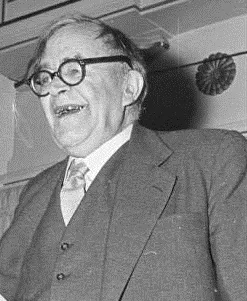
Karl Barth: A Theological Giant in the Episcopal Church (USA)
Karl Barth (1886-1968) was a Swiss Reformed theologian who is widely regarded as one of the most influential thinkers of the 20th century. His work has had a profound impact on various Christian denominations, including the Episcopal Church in the USA. Barth is best known for his emphasis on the sovereignty of God and the centrality of the Word of God in theology. This article explores Barth's contributions to theological thought and his significance within the context of the Episcopal Church.
Barth's Theological Framework
Barth’s theological revolution began with his seminal work, 'Epistle to the Romans,' where he challenged the liberal theological perspectives of his time. He emphasized the necessity of divine revelation and the need for human beings to recognize their dependence on God. His thoughts encouraged many within the Episcopal Church (USA) to reevaluate their doctrines and practices, driving a movement towards a more biblically centered faith.
The Influence of Barth on Episcopal Polity
Barth's views on the Church and its role in the world resonated with Episcopalians, who traditionally value the unity of the Church. He advocated for a church that is not just a community of believers, but also a witness to God's revelation. This perspective complements the Episcopal Church's commitment to the Book of Common Prayer and its understanding of liturgy as a means of experiencing the divine.
The Challenge of Secularism
As secularism began to rise in the 20th century, Barth's theology offered a robust response. He argued for the transcendent nature of God and the importance of maintaining a clear distinction between the divine and the secular. Episcopalians, facing similar challenges in contemporary society, found Barth's thoughts pertinent, advocating for a faith that stands firm amidst cultural shifts.
Barth's Doctrine of Revelation
Central to Barth's theology is his doctrine of revelation, which posits that God reveals Himself through Christ. This focus on Jesus Christ informs the way Episcopalians view the sacraments and Scripture. Barth's belief that God speaks through the Scriptures encourages Episcopalians to engage deeply with the Bible as the authoritative word of God, making it central in worship and personal devotion.
Barth's Understanding of Sin and Grace
Barth's views on sin and grace also deeply resonate with the teachings of the Episcopal Church. He articulated a view of sin that emphasizes human alienation from God, while simultaneously proclaiming the all-encompassing grace of God that seeks to redeem humanity. This duality aligns with the Episcopal Church's teachings on confession, repentance, and the assurance of grace, reinforcing their commitment to a transformational faith.
Conclusion: Barth's Enduring Legacy
In conclusion, Karl Barth’s contributions to theology have left an indelible mark on the Episcopal Church (USA). His emphasis on divine revelation, the centrality of Christ, and a robust understanding of sin and grace continue to inspire contemporary Episcopalians as they navigate the complexities of modern faith. Barth’s legacy serves as a reminder that despite the challenges posed by secularism, believers can find strength and hope in the sovereign God who actively reveals Himself in our lives.
Further Reading
- The Barthian Archive - A resource dedicated to Karl Barth’s life and works.
- Episcopal Church (USA) - Official website of the Episcopal Church.
- Theology Resources - Online resources for further theological study.






